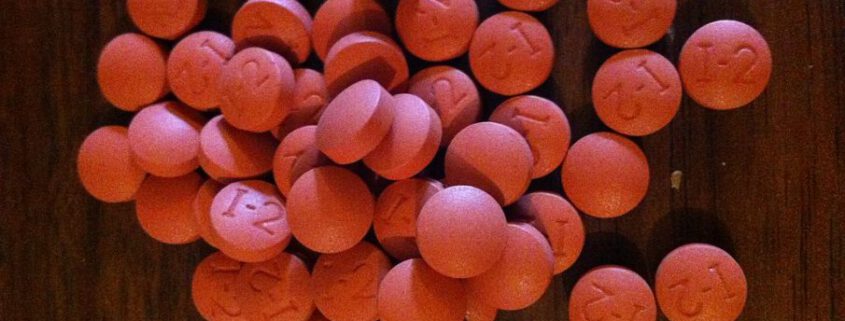COVID-19: Paracetamol, ibuprofen and other anti-fever drugs should be avoided
By Romeo F. Quijano, M.D.
Paracetamol, ibuprofen and other anti-fever drugs should be avoided, nothwithstanding the World Health Organization’s (WHO) flip-flopping advise regarding ibuprofen use for COVID-19 symptoms.
The reason cited by WHO in retracting its earlier advise to avoid using ibuprofen is that they “are not aware of any reports of any negative effects of ibuprofen beyond the usual known side-effects that limit its use in certain populations” and “are not aware of published clinical or population-based data on this topic”(1).
There are in fact several published reports and studies, including clinical and population-based studies, that show the negative effects of paracetamol, ibuprofen and other anti-fever drugs if used in several types of viral infections (2,3,4,5,6). COVID-19 patients should not be presumed to be exempted from these potential negative effects. The WHO should not expect at this time, while the pandemic is raging, to find published clinical and population-based studies specifically showing these negative effects in COVID-19 patients. Their main concern should be to protect COVID-19 patients from unnecessary risks because of irrational use of anti-fever drugs.
Fever is a natural defensive response against infectious disease. Fever is an ancient, evolutionary survival mechanism that is jeopardized by anti-fever synthetic drugs. Fever stimulates the innate and adaptive immune responses of the sick person, including the activation and mobilization of defensive cells and endogenous chemicals of that person to assume multiple roles (2) to the path of recovery and harmony with the environment. The use of antipyretic drugs to diminish fever may increase mortality in human populations with viral infection (3) and negatively affects patient outcomes in the intensive care unit (4). A variety of NSAIDs (ex. ibuprofen) have been shown to inhibit the antibody production in human cells (5). Aspirin, acetaminophen, and ibuprofen have also been shown to interfere with antiviral immune functions influencing the duration of viral shedding in rhinovirus infected humans (6).
In my opinion, fever in most cases should not be interfered with unless it exceeds 40 C. The age-old practice of frequent, vigorous sponge bath with warm water (without making the patient too uncomfortable) with adequate fluid intake is probably still the best management option. Appropriate nutrition, adequate ventilation and other supportive kind of treatment should also be done. Vitamin (ex. high dose Vitamin C) and mineral supplementation may be useful. Traditional medicine modalities (ex. use of herbal medications) may also help. When excessively high fever (>40 C) persists despite conservative treatment, the selective and appropriate use of synthetic antipyretics may be considered on a case to case basis especially if there is delirium, inability to sleep, and excessive anxiety.
(1) Updated: WHO Now Doesn’t Recommend Avoiding Ibuprofen For COVID-19 Symptoms.
AFP, 17 MARCH 2020.
https://www.sciencealert.com/who-recommends-to-avoid-taking-ibuprofen-for-covid-19-symptoms
(2) Fever and the thermal regulation of immunity: the immune system feels the heat.
Evans SS, Repasky EA, Fisher DT.
Rev Immunol. 2015 Jun;15(6):335-49. doi: 10.1038/nri3843
(3) Population-level effects of suppressing fever. Earn DJ, Andrews PW, Bolker BM.
Proc Biol Sci. 2014 Jan 22;281(1778):20132570. doi: 10.1098/rspb.2013.2570.
PMID: 24452021.
(4) The effect of antipyretic therapy upon outcomes in critically ill patients: a
randomized, prospective study. Schulman CI, Namias N, Doherty J, Manning
RJ, Li P, Elhaddad A, Lasko D, Amortegui J, Dy CJ, Dlugasch L, Baracco G,
Cohn SM. Surg Infect (Larchmt). 2005 Winter;6(4):369-75.
(5) Ibuprofen and other widely used non-steroidal anti-inflammatory drugs inhibit antibody production
in human cells. Bancos S1, Bernard MP, Topham DJ, Phipps RP.Cell Immunol. 2009;258(1):18-28.
doi: 10.1016/j.cellimm.2009.03.007. Epub 2009 Apr 5.
(6) Adverse effects of aspirin, acetaminophen, and ibuprofen on immune function, viral shedding, and clinical status in rhinovirus-infected volunteers. N. M. H. Graham, C.
= = = = =
Notes:
1. J. Burrell, R. M. Douglas, P. Debelle, and L. Davies, The Journal of Infectious
2. Diseases, vol. 162, no. 6, pp. 1277–1282, 1990.
The author is a retired professor of the Department Of Pharmacology and Toxicology, College of Medicine, University of the Philippines-Manila.







